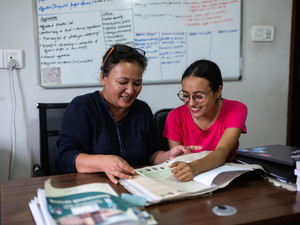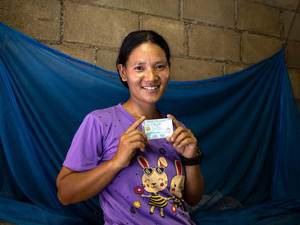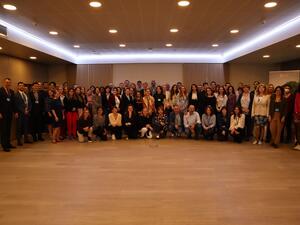Four States to accede to statelessness conventions today in Geneva
Four States to accede to statelessness conventions today in Geneva
UNHCR and the UN Office for Legal Affairs are holding a special treaty event this afternoon in Geneva at which Belgium, Gambia, Georgia and Paraguay are expected to accede to one or both of the UN statelessness conventions. Today's event is the largest number of accessions on a single occasion ever. It reflects growing recognition among governments that international action is needed to address statelessness, which is an overlooked source of suffering and denial of human rights for at least 10 million people worldwide.
UNHCR is promoting accession to the two conventions in the lead-up to our planned launch on 15 September of a worldwide campaign to end statelessness. Increasing the number of States parties to the two conventions is a key part of that campaign. With today's accessions, there will be 82 States party to the 1954 Convention relating to the Status of Stateless Persons, and 58 States parties to its sister Convention, the 1961 Convention on the Reduction of Statelessness.
Today's treaty event will bring to 24 the number of States that have acceded to one or both conventions since 2011. This recent increase is due in large part to the impact of advocacy with governments since UNHCR organized a ministerial meeting on refugees and statelessness in December 2011. Thirty-four governments made pledges to accede in 2011 and 40 per cent of those will have so far been implemented. UNHCR encourages governments that have pledged to accede to accelerate their efforts to finalize accession, and we urge all States that have yet to do so to bring their nationality laws into line with these conventions.
Statelessness, in UNHCR's view, ought not to exist in the 21st century. Most stateless people live in the shadows, with little or no access to education, health care, social services or employment. Many are unable to move freely because of the lack of identity documents. The 1954 Convention - which is 60 years old this year - is designed to ensure that stateless persons enjoy a minimum set of rights until such time as they can acquire a nationality. The 1961 Convention sets out rules to be implemented through States' national laws and procedures to prevent individuals from becoming stateless, reducing the prevalence of statelessness over time.
For more information on this topic, please contact:
- In Geneva, Adrian Edwards on mobile +41 79 557 9120
- In Geneva, Dan McNorton on mobile +41 79 217 3011
- In Geneva, Babar Baloch on mobile +41 79 557 9106








